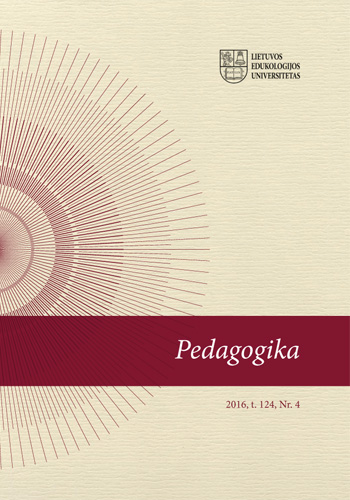Priešmokyklinio ir pradinio mokyklinio amžiaus vaikų gebėjimas vertinti paaiškinimų kokybę
Ability of Pre-school and Primary School Children to Assess the Quality of Explanations
Author(s): Aušra Daugirdienė, Agnė Brandišauskienė, Danguolė EndriuškienėSubject(s): Education, Preschool education, School education, Educational Psychology, Cognitive Psychology, Behaviorism, Evaluation research
Published by: Vytauto Didžiojo Universitetas
Keywords: pre-school children; primary school children; ability to assess the quality of explanations;
Summary/Abstract: Explanations about the surrounding world are of particular significance for children since it is a way for them to learn and cognise the environment. However, Legare (2014) maintains that little is known about the impact of explanations on learning. For the past decade, explanations have been one of the major themes in the studies of cognitive psychology. They aim at answering the key questions: what is the nature of the phenomenon (explanation), what is it composed of, what are its quality criteria, how is it constructed and perceived by children (Lombrozo, 2006). Hence, the aim of the current paper is to explore the ability of pre-school and primary school children to assess the quality of explanations. The aforesaid aim was posed in accordance with the methodology developed by the authors (the methodology was designed with reference to the study of Baum, Danovitch, and Keil (Baum et al., 2008). The research involved 61 children: 20 pre-school children, and 41 primary school children (21 children of the second grade, and 20 children of the fourth grade respectively). The main conclusions of this research are: – children’s ability to assess the quality of explanations increases from pre-school age to the second grade of primary school, yet at this period, it remains unchanged (from the second to fourth grade);
Journal: Pedagogika
- Issue Year: 124/2016
- Issue No: 4
- Page Range: 129-146
- Page Count: 18
- Language: Lithuanian

